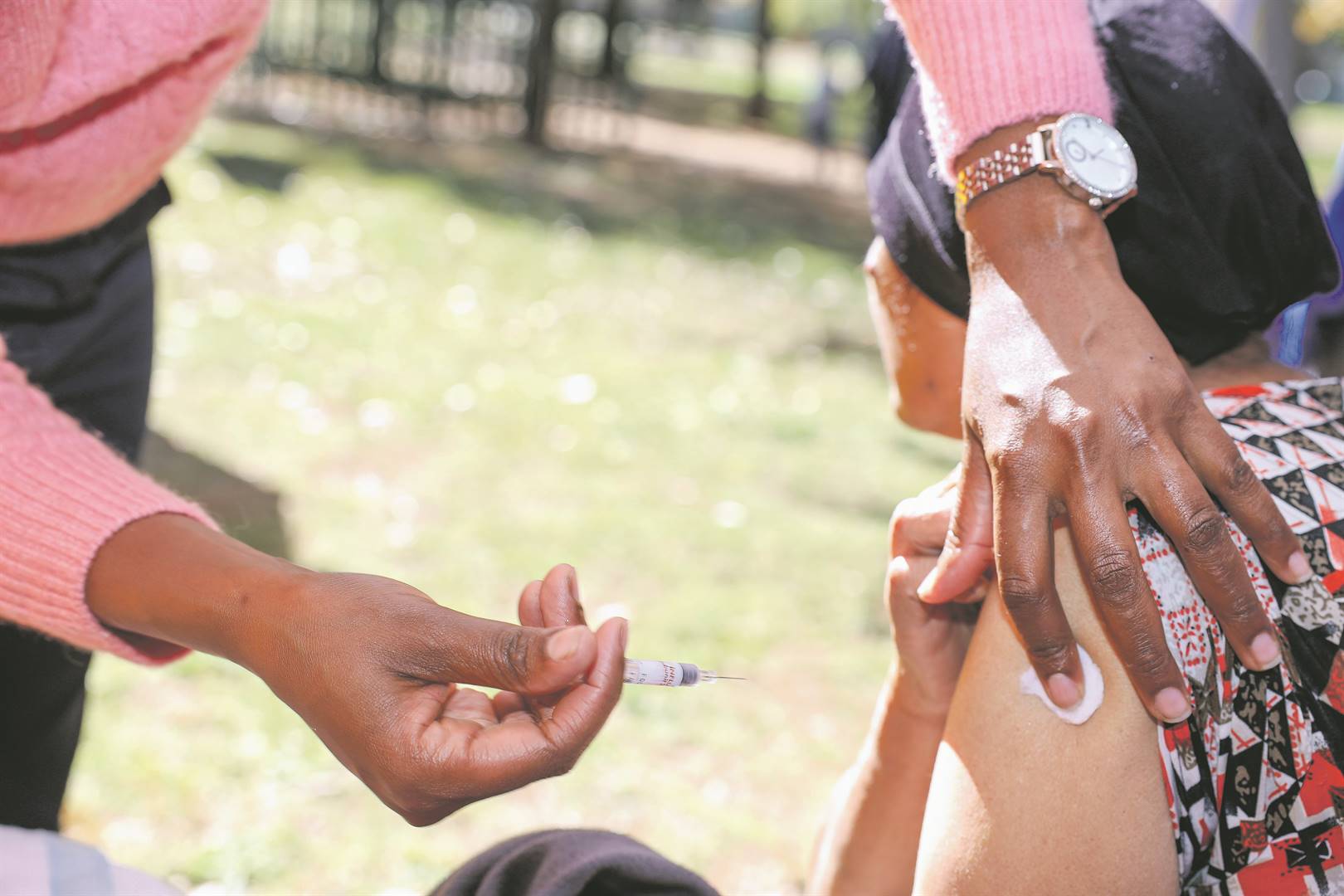
It takes up to two weeks to develop immunity after a flu vaccination, therefore, South Africans who have not yet received it should hurry up.
The flu season is coming as we approach winter, with the National Institute for Communicable Diseases (NICD) reporting at least 108 flu cases, 94 confirmed cases of Covid-19 and 391 cases of the respiratory syncytial virus (RSV) last week.
The official season starts when cases reach a threshold to be announced by the NICD.
The RSV, which can make children – especially the younger – seriously ill, is usually in circulation before the flu season.
More than 11 500 South Africans die annually from the flu and around 20 000 are hospitalised, said Themba Hadebe, clinical head at Bonitas.
READ: Revolutionary vaccine fights avian influenza
Not everyone becomes seriously ill, but the flu causes many people to have to stay home from work and costs children important school days, said Cheryl Cohen, head of the NICD’s centre for respiratory diseases and meningitis.
“The vaccine is not 100% effective against all flu viruses, but usually around 60% effective in preventing the person from becoming seriously ill,” said Caroline Maslo, senior clinical adviser for systems and innovation at Netcare.
According to Hadebe, there are flu virus strains: A, B, C and D. The majority of seasonal outbreaks among people are due to the A and B strains.
Trivalent vaccinations usually protect you against two influenza A strains and one influenza B strain, while quadrivalent vaccinations include two influenza B strains. According to a World Health Organization (WHO) report, influenza A strains have been more prevalent than B strains in previous flu seasons worldwide.
According to Maslo, trivalent and quadrivalent vaccinations are available in South Africa, and the specific strains for which vaccine is made available are determined by the World Health Organization (WHO).
The WHO has more than 140 national influenza centres in over 110 countries that collect data on circulating flu viruses. These centres study the viruses and send samples and data to one of the WHO’s five centres for influenza research in China, Australia, Japan, the US and Britain.
READ: Parents urged to vaccinate children on World Immunisation Day
Maslo explained:
A panel of experts then make recommendations on which strains should be included in vaccinations for the northern and southern hemisphere’s flu season.
The WHO has already indicated what this winter’s vaccines for the southern hemisphere should look like in September. Cohen recommends especially that people over 65 years of age, those with underlying heart and lung diseases, people with HIV and pregnant women are vaccinated against flu. This group has a higher risk of becoming seriously ill.
“Vaccination during pregnancy also protects the unborn child.”
The most common symptoms of this flu season will be a fever of 38C° or higher; sore muscles, especially in your arms, back and legs; and chills and sweating, said Hadebe.
Meanwhile, with Sars-CoV-2 (the virus that causes Covid-19) also commonly circulating, several manufacturers are researching a combination vaccine for this and for flu viruses, but no such products are available in South Africa yet.
“It would make sense because the groups at risk for serious illness are the same for the two types of viruses,” said Cohen.
“There is no licensed mRNA vaccine against the flu yet, but the testing phases are in an advanced stage. There is also an advanced programme to develop a combination mRNA vaccine for flu and Covid-19.”
The WHO has also recently launched a new network for monitoring coronaviruses such as Sars-CoV-2 and Mers-CoV. CoViNet is an extension of the laboratory networks that monitored the Covid-19 pandemic and will also keep an eye on the emergence of new coronaviruses.




 Publications
Publications
 Partners
Partners









